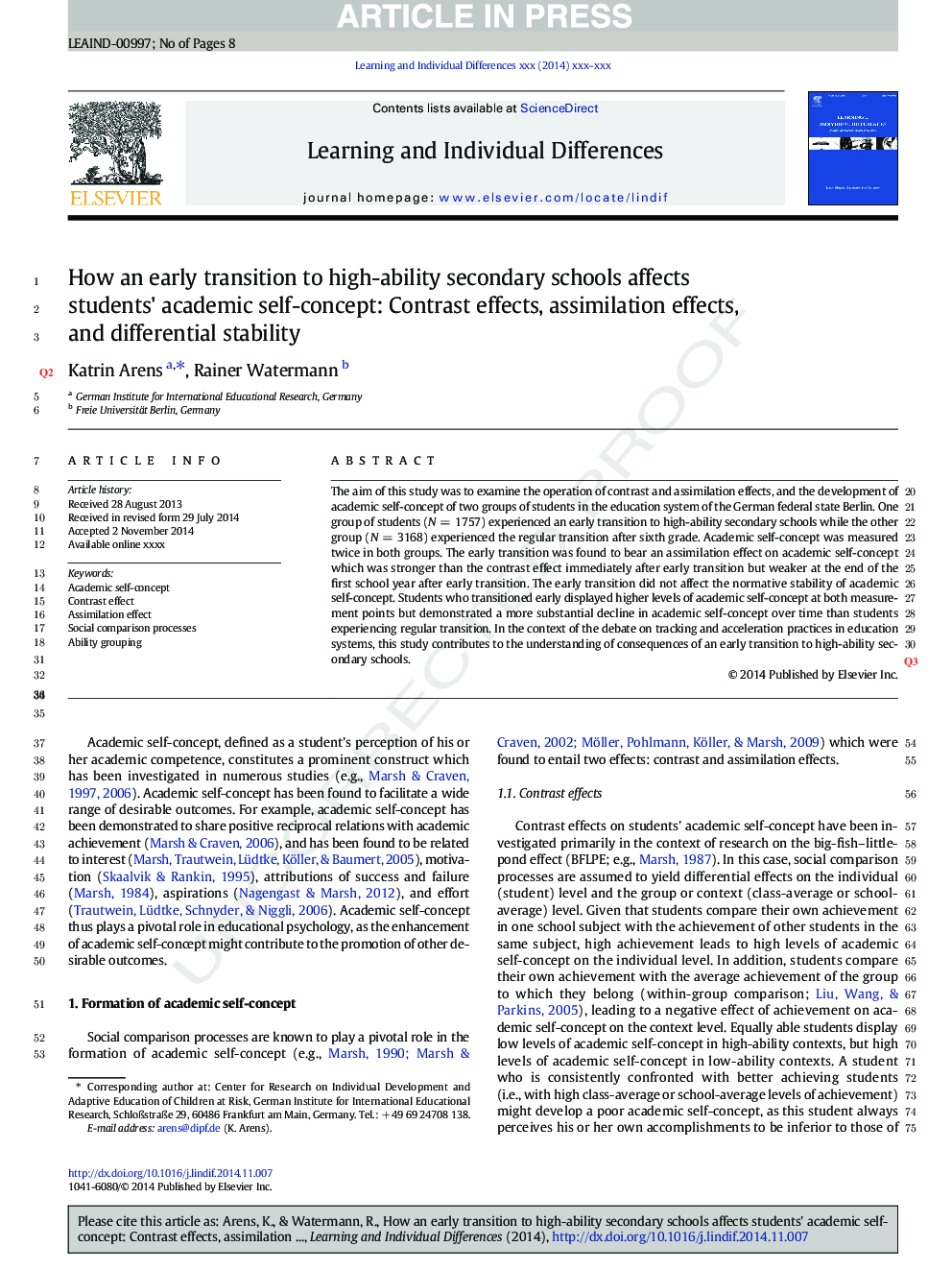| Article ID | Journal | Published Year | Pages | File Type |
|---|---|---|---|---|
| 6844902 | Learning and Individual Differences | 2015 | 8 Pages |
Abstract
This study examined the operation of contrast and assimilation effects, and the development of academic self-concept of students in the education system of the German federal state Berlin. One group of students experienced an early transition to high-ability secondary schools while the other group experienced the regular transition after sixth grade. The early transition was found to bear an assimilation effect on academic self-concept which was stronger than the contrast effect immediately after early transition but weaker at the end of the first school year after early transition. The early transition did not affect the normative stability of academic self-concept between two measurement points. Students with an early transition displayed higher levels of academic self-concept at both measurement points but a more substantial decline in academic self-concept than students experiencing regular transition. The findings are discussed in the context of the debate on tracking and acceleration practices in education systems.
Related Topics
Social Sciences and Humanities
Psychology
Developmental and Educational Psychology
Authors
A. Katrin Arens, Rainer Watermann,
